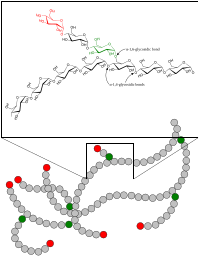Glycogen Storage Disease Type 6

Glycogen storage disease type 6 (GSD6) is a genetic disease in which the liver cannot process sugar properly. The liver is responsible for breaking down a substance called glycogen. Glycogen is the stored form of sugar that is made by breaking down carbohydrates. When the liver cannot break down glycogen properly it causes a buildup that is damaging to the body. Symptoms of the disease usually begin in infancy or childhood and include low blood sugar (hypoglycemia), an enlarged liver (hepatomegaly), and an increase in the amount of lactic acid in the blood (lactic acidosis). These symptoms are especially likely to occur when an individual does not eat for a long time. Symptoms tend to improve as people with this disease get older. The disease is especially common in the Mennonite population.
GSD6 is caused by mutations (changes) in the PYGL gene. The disease is inherited in an autosomal recessive manner. The diagnosis is made based on genetic testing of the PYGL gene. A liver biopsy that tests the function of liver glycogen phosphorylase may be necessary if the results of the genetic testing are inconclusive. Treatment may include eating frequent meals that are high in carbohydrates.
GSD6 is caused by mutations (changes) in the PYGL gene. The disease is inherited in an autosomal recessive manner. The diagnosis is made based on genetic testing of the PYGL gene. A liver biopsy that tests the function of liver glycogen phosphorylase may be necessary if the results of the genetic testing are inconclusive. Treatment may include eating frequent meals that are high in carbohydrates.